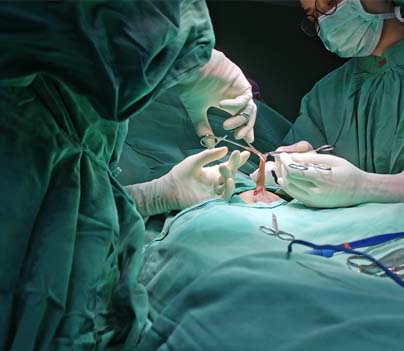Circumcision


- Diagnosis
You can get a circumcision for religious or cosmetic circumcision or if you are unhappy with the size, shape, or appearance of the foreskin. If you have any pain, inflammation, or infection on your foreskin or the tip of your penis, then you might qualify for medical circumcision.
Your urologist will retract your foreskin to examine your penis glans for any signs of infection, injury, or inflammation, and its extent, if any, to determine whether surgical treatment is necessary.
Common diagnostic tests performed before circumcision are:
- Urinalysis for UTI detection by checking the appearance, concentration, and content of the patient’s urine
- Tissue culture/swab tests to examine the foreskin for bacterial/fungal infection in a laboratory
- Random blood sugar and glucose urine tests to find the glucose levels (for diabetic patients)
Procedure
Laser circumcision is one of the most advanced circumcision procedures. The surgeon cuts off the foreskin using a high-energy laser beam. Since a laser is used to create the incision, there is almost no bleeding and the wound edges are clean. It also completely preserves the surrounding tissues and is best for tissue conservation.
The surgery only takes 10-15 minutes and has a much shorter recovery time. Laser circumcision is also preferred over other procedures as there is very little postoperative pain or discomfort associated with it.
You have to follow the given instructions to prepare yourself for laser circumcision surgery:
- Inform your surgeon about your complete medical history, including any chronic conditions you are suffering from and regular medicines you are taking. Blood thinners and similar medicines increase the chances of hemorrhage during the surgery, so your surgeon will give you instructions to prepare for the surgery accordingly.
- If your surgery is being performed under general anesthesia, then you should avoid eating anything for at least 6-8 hours before the surgery.
- Arrange for someone to drive you home after the surgery as you may be discharged on the same day and it is not advisable to drive on the same day as the surgery.
- Avoid alcohol for at least 48 hours. Stop tobacco consumption, such as gutka, smoking, etc. before the surgery as they may interfere with the healing process.
- If your job entails manual labor, you should take at least a week off from work, especially if you are undergoing open surgery.
Recovery after laser circumcision is often faster and involves fewer complications/side effects as compared to conventional circumcision. Laser circumcision is completed in less than 30 minutes and patients are discharged from the hospital after a few hours on the same day. There is very minimal pain or discomfort after the surgery, which can be managed by NSAID painkillers. The patients may also need to take antibiotics to prevent infections.
The patient may have penile swelling and discomfort for about 3-4 days, and most patients are able to return to regular life and office routine in 1-3 days (6-7 days for people performing manual labor). Typically healing takes about 7-10 days.
- you are unhappy with the look, size, or shape of your foreskin.
- you have pain or discomfort while peeing.
- you can’t retract your foreskin.
- your penis is releasing a foul-smelling discharge.
- your penis is swollen.
- you notice blood on the tips of your penis.


A laser circumcision operation is an effective way of permanently removing the foreskin from the penis with the least amount of postsurgical complications. The surgery does not require any hospitalization and can be easily performed under local anesthesia which reduces the risks of postsurgical anesthesia-related complications.
It also has a much quicker recovery period as compared to open circumcision surgery. It is more precise than stapler circumcision surgery and helps prevent complications such as regrowth of the foreskin. It also has a clean scar which provides good aesthetics after the surgery.
- 10 min procedure
- Minimal blood loss
- A zero wound or scar after the procedure
- Negligible risk of infection
- No daily-dressing needed
- Doesn’t effect on the man’s fertility
- Permanent solution for all foreskin issues
- No pain during sexual intercourse
- 100% success rate
- The permanent solution, no recurrence after the laser procedure
- Fit to resume his normal lifestyle after the next day.
A. Depending on the type of the surgery, most men are recommended to avoid sexual activity for at least 6 weeks as any sexual activity before that can cause complications with wound healing and increase the chances of contracting STIs.
A. If you have a desk job, you can return to work within 2-3 days of the surgery, however, if your work entails physical labor, you may need to wait about a week or so before returning to work.
A. The most common signs of infection after circumcision surgery include the presence of discharge and pus (cloudy, yellowish/white, foul-smelling fluid), hot skin, and/or spreading redness around the wound site.
